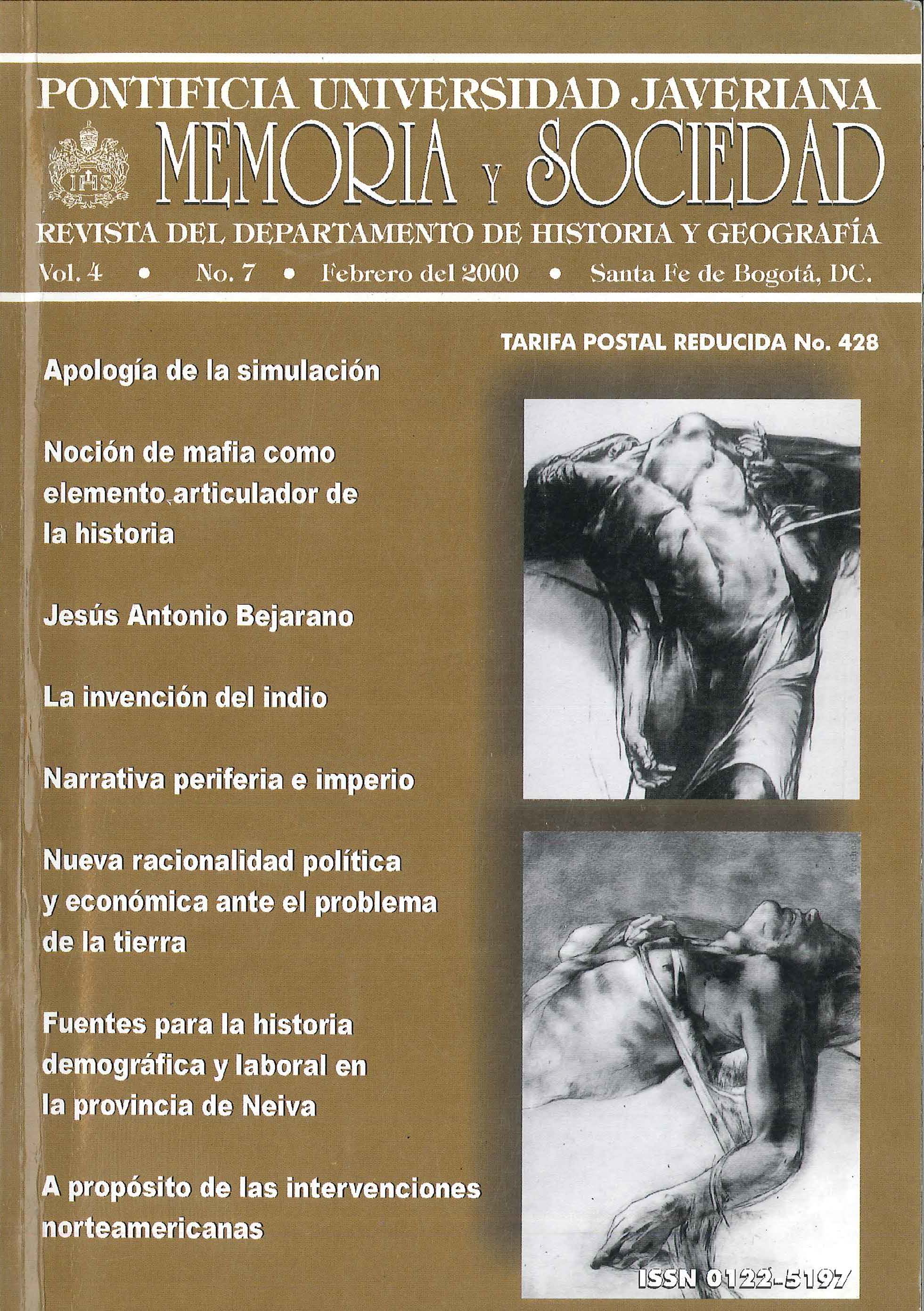Abstract
The Invention of the Indian in the first cycle of Indian debate utilizing an hermeneutic analysis of the first two chapters of the text Servidumbre natural y libertad cristiana. segun los tratadistas españoles de los siglos XVI y XVII by the Mexican historian Silvio Zavala, this article records the historic context of the first cycle of Indian Debate. The text under analysis pertains to the revionist historic current which, realized in Mexico during the first half of the twentieth century as a pioneering project in Latin America, introduced the systematicacademic university studies of historical knowledge. In contrast with the previous traditional history, which was event-based and heroic, the historiography of these first decades initiated a new phase of understanding, the History of Spanish Juridical Institutions in America. Using a positivist paradigm of a true and objective history, two objectives were proposed: on one hand, the recuperation of the image of the conquerors based on cultural contributions to America, and, on the other hand, the reconciliation of the conquered with their Hispanic roots.The journal Memoria y Sociedad is registered under a Creative Commons Attribution 4.0 International Public License. Thus, this work may be reproduced, distributed, and publicly shared in digital format, as long as the names of the authors and Pontificia Universidad Javeriana are acknowledged. Others are allowed to quote, adapt, transform, auto-archive, republish, and create based on this material, for any purpose (even commercial ones), provided the authorship is duly acknowledged, a link to the original work is provided, and it is specified if changes have been made. Pontificia Universidad Javeriana does not hold the rights of published works and the authors are solely responsible for the contents of their works; they keep the moral, intellectual, privacy, and publicity rights.
Approving the intervention of the work (review, copy-editing, translation, layout) and the following outreach, are granted through an use license and not through an assignment of rights. This means the journal and Pontificia Universidad Javeriana cannot be held responsible for any ethical malpractice by the authors. As a consequence of the protection granted by the use license, the journal is not required to publish recantations or modify information already published, unless the errata stems from the editorial management process. Publishing contents in this journal does not generate royalties for contributors.

